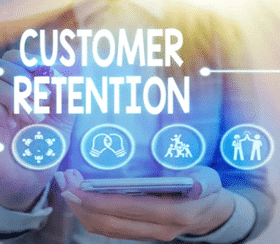€uro of App Advertising & the Value of Access for MNO/MVNO
The internet has firmly established itself as a foundational tool for communication and commerce. Technology giants such as Meta have built vast platforms that provide users with “free” access to services – funded primarily through targeted advertising. However, a recent ruling by the European Court of Justice (ECJ), under the framework of the Digital Markets Act (DMA), has brought renewed scrutiny to the underlying value chain of advertizing and allows it to be compared to cost of data access for MNO/MVNOs. In effect it illustrates the scale of the MNO/MVNO business challenge in simple numeric terms.
Data as Currency: The New Standard for Consent
The ECJ’s decision emphasises that users must give explicit, informed consent before their personal data— such as preferences and behavioural profiles—can be processed and shared for advertising purposes. This marks a shift from the long-standing
model of implied consent, which has been central to the monetization strategies of platforms like Meta.
The ruling found Meta in breach of these new standards across its platforms. In response, the company has initiated remedial steps to comply. Meta has also expressed concern that stricter consent requirements may degrade the user experience in Europe over time. Yet this stance appears contradictory; greater transparency and user control are likely to strengthen trust rather than weaken it, particularly among core user groups.
The True Price of Going Ad-Free
What the ruling truly brings into focus is the economic value of an ad-free experience. It implicitly places a price tag on each user’s data and digital preferences. Meta’s current offering for an ad-free experience in the EU is priced at €12.99 per month for mobile users, effectively setting a market value for user privacy.
Other platforms are adopting similar models. X (formerly Twitter) offers a range of premium subscriptions. Its basic Premium tier costs €8 per month, though it still includes some advertising. The Premium Plus tier, which removes all ads but retains some promotional content, is priced at €38 per month. This tier also includes enhanced functionality—such as increased visibility, extended post lengths, and access to X’s AI service, Grok—illustrating how platforms are bundling features to justify higher subscription fees.
Comparing Content Value with Connectivity
This development raises an important question: How does the value of app-based content compare to the cost of the connectivity required to access it? While not a direct comparison, the economics are telling. Ad-supported digital experiences now approach the monthly cost of mobile data plans.
There are variations but, for example, Vodafone Spain offers 50GB of 5G data for €14.99, while MVNO Lebara offers 20GB for the same price, in Germany. These data plans, provided by communications service providers (CSPs), are the very backbone of mobile internet access. Yet the perceived value of ad-free app experiences is reaching parity with—or surpassing—the cost of the data services that enable them.
Implications for the Digital Ecosystem
This dynamic forces a re-evaluation of the value chain in digital services. While advertising remains a critical mechanism for subsidizing access, particularly for users unwilling or unable to pay subscription fees, the DMA rebalances the relationship between user choice and platform monetization. The Act does not prohibit advertising; rather, it seeks to ensure that users are fully informed and able to make deliberate choices about their data.
For CSPs, this moment represents both a challenge and an opportunity. As platform-based services extract increasing value from user engagement, the role of connectivity providers must be reasserted. CSPs must communicate their value more clearly—not just as enablers of access, but as essential participants in the broader digital economy. Enea provides a range of network traffic management tools to both define targeted data packages, analyse and improve the quality of network access, to enable new monetization opportunities for CSPs & MVNOS.
Conclusion
The ECJ ruling and the DMA are reshaping the economics of digital access in Europe. By making the cost of privacy visible and explicit, these regulatory changes are prompting a deeper discussion about the relative worth of content, connectivity, and user attention. For platforms, CSPs, and regulators alike, the path forward lies in creating a fairer, more transparent value exchange—one that respects user choice while sustaining innovation and access.
Review our Enea capabilities for managing network data traffic @ https://www.enea.com/solutions/traffic-management/
References:
[1] ECJ Judgement: https://ec.europa.eu/commission/presscorner/detail/en/ip_25_1085
[2] Meta Subscription Pricing
[3] BBC Article on Meta : https://www.bbc.co.uk/news/articles/czd3mey1ej2o
[4] X Premium Pricing https://help.x.com/en/using-x/x-premium#tbpricing-bycountry
[5] Vodafone Spain pricing example [50GB] https://www.vodafone.es/c/particulares/es/productos-y-servicios/movil/contrato/tarifas-contrato/
[6] Lebara (Germany) Pricing Example https://www.lebara.de/en/prepaid/data-tarif.html





